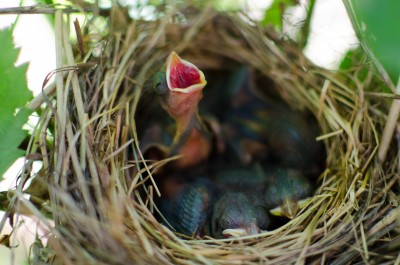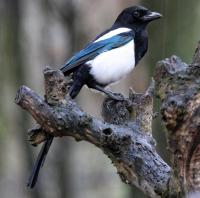- Home
- FAQs
- Customer Video Gallery
- Customer Photo Gallery
- Bird Facts
- Bird Food Blog
- Bird Information
- Feeding Advice
- Small Animal Information
- A to Z of Guinea Pigs
- A to Z of Hamsters
- A to Z of Rabbits
- Basic Care for Guinea Pigs
- Basic Care for Hamsters
- Basic Care for Rabbits
- Basic care for Chinchillas
- Basic care for Ferrets
- Basic care for Gerbils
- Basic care for Mice
- Basic care for Rats
- Buying a Healthy Small Animal
- Does your Reptile need a Licence
- Equipment for Ferrets
- Equipment for Hamsters
- Equipment for Mice
- Equipment for your Chinchilla
- Equipment for your Gerbil
- Equipment for your Guinea Pig
- Equipment for your Rabbit
- Keeping a House Rabbit
- Dog Information
- Cat Information
- Customer Information
- Fat Balls
- Suet Pellets
- Straights
- Seed Mixes
- Suet Treats
- Mealworms
- Bird Feeders
- My Account
Baby Birds
 Most people’s first reaction on seeing a baby bird on the ground is to rescue it and this is typical of our wildlife friendly nature. However, careful thought should be given before any well intentioned act of kindness as it might do more harm than good.
Most people’s first reaction on seeing a baby bird on the ground is to rescue it and this is typical of our wildlife friendly nature. However, careful thought should be given before any well intentioned act of kindness as it might do more harm than good.If the baby bird has a good deal of its feathers and is hopping around the garden it has most likely fledged and it is perfectly natural for it to be out of the nest. The fledgling’s parents will continue to look after their young for up to a few more days when, having developed full wing and tail feathers, the young adventurer will be able to take to the air and begin its own life on the wing. If you feel the young bird is in danger, from predators or road traffic for instance, then it is perfectly sensible and acceptable to move it a short distance to safety.
Parent birds may not be far away, even if not immediately apparent, and if the fledgling is moved within hearing distanceof the original location will dutifully attend to their young. If you have dogs, cats or very young children consider keeping them out of the garden until the young bird has flown away, or move the bird to a neighbour’s property that have no such hazards.
Contrary to commonly held belief, parent birds will not readily abandon their young due to the smell of human contact, their sense of smell is fairly poor and their instinct to care for their young is very strong. If you think the young bird has been abandoned move away and keep a discreet eye on it for 10-15 minutes or longer if possible, and the parents will likely return to feed it when they feel it is safe to do so. Bear in mind also that certain owl chicks climb in and out of the nest tree before they are half grown so if you find a young owl you should always leave it alone.
If you do determine a young bird has been abandoned it may be necessary to remove the fledgling, but this should be a last resort as survival rates in care are very low, even abandoned it may stand a better chance of survival in the wild. Before you do intervene it would be advisable to contact local experts or the RSPB for advice.
If you find a young bird without feathers or with a fluffy covering, known as down, then it is likely that this nestling, as it is called, has fallen by accident and it may be possible to return it to its nest.
If the entire nest has fallen it may be possible to return it and its contents and secure it back in place with some string or wire. If the nest is too badly damaged a similarly sized artificial replacement, such as a bowl or basket, lined with dry grass may well serve as suitable substitute.
Young nestlings make a great deal of noise, especially when they think food is on offer, and this makes them very vulnerable to predators when not in the safety and security of the nest. However strong the temptation, you should not attempt to rear a nestling yourself as it is a very specialist task best left to experts in wildlife care, because their expertise, experience and dedication will give the young nestling its best chance for survival.
All wild birds, their eggs and nests are protected under UK law.




